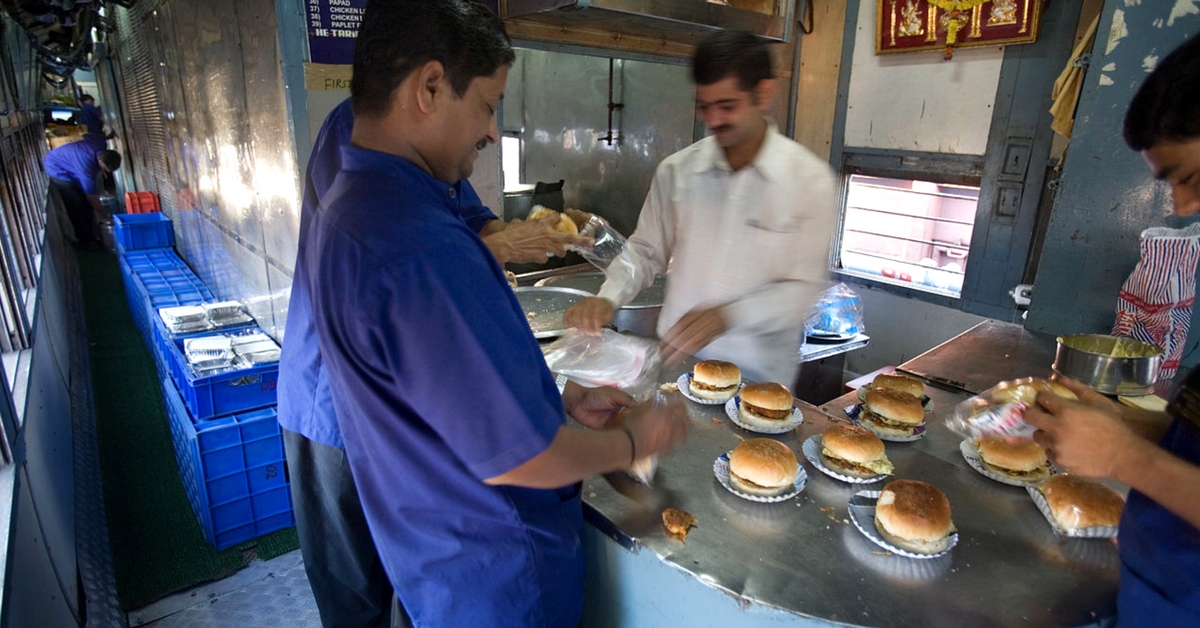E-Catering to Feedback Forms: 5 Ways the IRCTC Is Tackling Its Catering Crises
With the setting up of Indian Railway Catering and Tourism Corporation (IRCTC) in 1999, the aim was to tackle the crises of the poor quality of food, tardy service and overpricing.

Time and again, the Indian Railways has faced severe criticism for its catering services.
From finding lizards in one’s meal to the shabby pantry cars in the trains where the meals are prepared, the situation has amounted to such an extent that one would probably think ten times before ordering food in the national commuter, lest they fall sick.
Indeed, it is a mammoth task of logistics to serve the millions who board trains on a daily basis. But it is the right of every citizen to be served safe and hygienic food when they entrust the authorities for the service.
With the setting up of Indian Railway Catering and Tourism Corporation (IRCTC) in 1999, the aim was to tackle the crises of the poor quality of food, tardy service and overpricing.

Previously, much of the catering services were handled by private parties, pertaining to particular routes or group of trains. Apart from the exception of vegetarian and non-vegetarian options, there wasn’t much variety in the menu from which a passenger could choose.
To bring a major revamp in the functioning of the catering services, a major shift in the system was spearheaded by the Suresh Prabhu-led Railway Ministry to offer the passengers not just a better travel experience but culinary one as well.
Here are the five major changes that were brought in the system:
1. Enabling the provision of eCatering: One can now order pre-packed food from major food chains such as McDonalds, Pizza hut, Haldiram etc., wherein the food will be delivered to the passengers by the respective vendors.
2. Instead of having the food prepared by vendors in the pantry cars that resulted in substandard quality due to lack of supervision, the meals are now prepared at IRCTC’s own base kitchens that have been upgraded.
3. A shift was made to a revenue-sharing model from the existent ‘license fee’ model, under which firms were given the license of catering service. Earlier, once the fee was paid, the concerned authorities would leave the entire food disbursing responsibility on the caterers. Due to lack of supervision and timely monitoring, this amounted to overpricing by the vendors.
4. The catering services on all trains have been made optional. In fact, trains like Rajdhani and Shatabdi – where one had to pay for the food – will no longer compel passengers if they wish to opt out of the services. This has been enabled to bring transparency between passengers and vendors. The provision to include meals at the time of booking tickets still holds.
5. Interestingly, many times vendors would announce a shortage of standard meals and push the passengers with the provision of ‘a la carte’ meals that was highly over-priced. The malpractice was put to an end with enforcing only standard meals on trains that would have a greater variety to choose from.
Like this story? Or have something to share?
Write to us: [email protected]
Connect with us on Facebook and Twitter.
NEW: Click here to get positive news on WhatsApp!
If you found our stories insightful, informative, or even just enjoyable, we invite you to consider making a voluntary payment to support the work we do at The Better India. Your contribution helps us continue producing quality content that educates, inspires, and drives positive change.
Choose one of the payment options below for your contribution-
By paying for the stories you value, you directly contribute to sustaining our efforts focused on making a difference in the world. Together, let’s ensure that impactful stories continue to be told and shared, enriching lives and communities alike.
Thank you for your support. Here are some frequently asked questions you might find helpful to know why you are contributing?


This story made me
-
97
-
121
-
89
-
167













